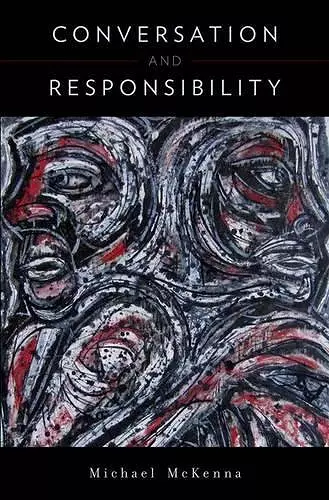Conversation & Responsibility
Format:Hardback
Publisher:Oxford University Press Inc
Published:19th Apr '12
Currently unavailable, and unfortunately no date known when it will be back
This hardback is available in another edition too:
- Paperback£36.49(9780190857783)

In this book Michael McKenna advances a new theory of moral responsibility, one that builds upon the work of P.F. Strawson. As McKenna demonstrates, moral responsibility can be explained on analogy with a conversation. The relation between a morally responsible agent and those who hold her morally responsible is similar to the relation between a speaker and her audience. A responsible agent's actions are bearers of meaning -- agent meaning -- just as a speaker's utterances are bearers of speaker meaning. Agent meaning is a function of the morally quality of the will with which the agent acts. Those who hold an agent morally responsible for what she does do so by responding to her as if in a conversation. By responding with certain morally reactive attitudes, such as resentment or indignation, they thereby communicate their regard for the meaning taken to be revealed in that agent's actions. It is then open for the agent held responsible to respond to those holding her responsible by offering an apology, a justification, an excuse, or some other response, thereby extending the evolving conversational exchange. The conversational theory of moral responsibility that McKenna develops here accepts two features of Strawson's theory: that moral responsibility is essentially interpersonal -- so that being responsible must be understood by reference to the nature of holding responsible -- and that the moral emotions are central to holding responsible. While upholding these two aspects of Strawson's theory, McKenna's theory rejects a further Strawsonian thesis, which is that holding morally responsible is more fundamental or basic than being morally responsible. On the conversational theory, the conditions for holding responsible are dependent on the nature of the agent who is responsible. So holding responsible cannot be more basic than being responsible. Nevertheless, the nature of the agent who is morally responsible is to be understood in terms of sensitivity to those who would make moral demands of her, thereby holding her responsible. Being responsible is therefore also dependent on holding responsible. Thus, neither being nor holding morally responsible is more basic than the other. They are mutually dependent.
"Conversation and Responsibility is simply a terrific book that repays multiple readings. Michael McKenna offers a rich and subtle exploration of a whole host of issues, takes a highly original and interesting approach of his own, and does it all in a most impressively judicious and open-minded way." Philosophical Studies "McKenna has managed to turn the spotlight on an absolutely fundamental question--Just what is responsibility, anyhow?--that has received far less direct attention than it should, and his treatment of that question is informed by a command of the contemporary literature that is at once deep and synoptic. The book is a tour de force, and everyone should read it." George Sher, Rice University "Michael McKenna's Conversation and Responsibility is a very important book, one that must now take pride of place in any philosophical conversation about moral responsibility for years to come." Criminal Law and Philosophy "Michael McKenna's Conversation and Responsibility is an ambitious and impressive statement of a new theory of moral responsibility. EL Conversation and ResponsibilityEL is meticulously erected and defended. The fundamental analogy employed is both illuminating and stimulating of further reflection and debate. Conversation and Responsibility belongs on the top shelf of any set of readings devoted to the contemporary discussion of moral responsibility." Philosophical Review
ISBN: 9780199740031
Dimensions: 155mm x 236mm x 23mm
Weight: 499g
272 pages